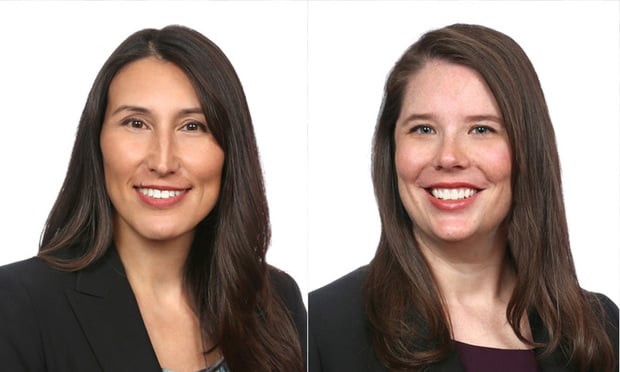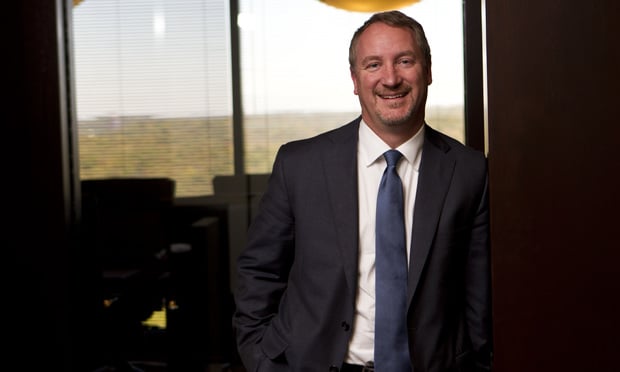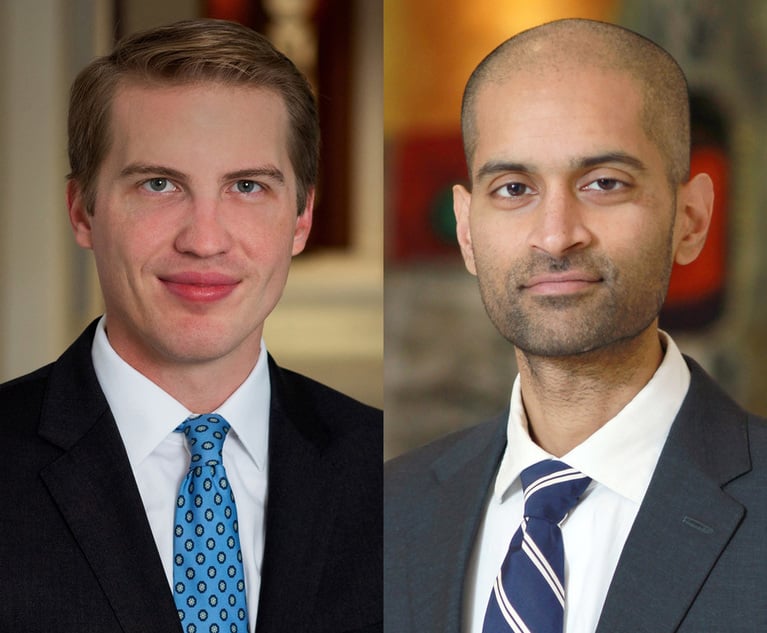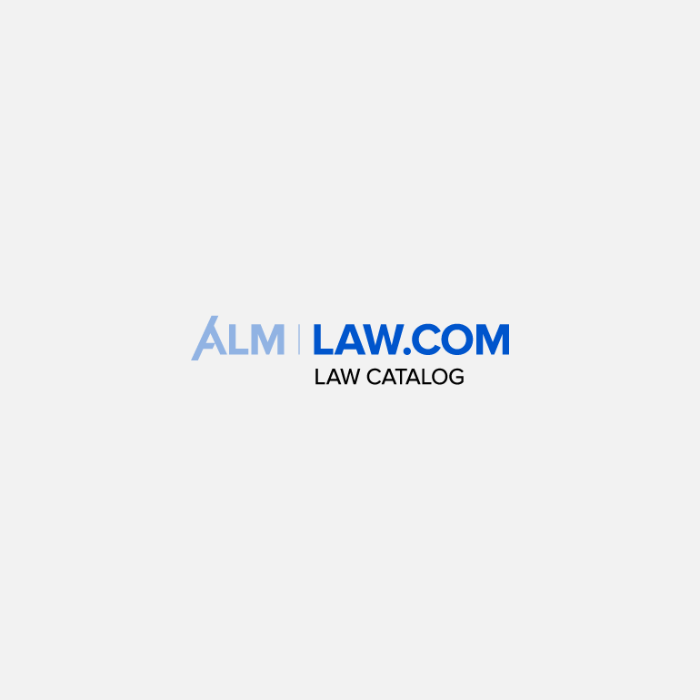Now that COVID-19 (the Coronavirus) has been characterized as a “pandemic,” much is unknown regarding the ultimate impact on businesses and others. Things are happening quickly, and law firms have had to take steps to respond rapidly and evolve. On March 14, 2020, the Supreme Court of Georgia declared a statewide judicial emergency, impacting ongoing cases and other judicial proceedings. Many courts have suspended the onset of new jury trials or have otherwise tolled case deadlines to maximize the possibility of containment and in service of “social distancing.”
According to a recent private survey about COVID-19, 74% of law firm respondents expect that there will be a modest to severe impact on legal services demand over the next two quarters. In addition to the issues facing all businesses during this time, law firms also face unique risks as a result of the spread of COVID-19. Small and midsize firms, in particular, may not have previously planned for such large-scale interruptions. Law firms face risks based on their role as employers and also based on the duties owed to clients. Thus, law firms have additional considerations beyond the typical business or employer. Below are some of the risks and recommendations for law firms reviewing their response to this issue.
Provide Information
Many law firms are putting together or have put together teams to respond to all COVID-19 issues that could impact the firm, from health to client services to IT capabilities. It can be like the response team that a firm may have in place (or on call) to respond to a cyber attack. Having a team of firm representatives of areas like client relations, employee benefits and technology can help provide information to firm leadership and provide practical information and plans to employees.
Once immediate health and safety issues are addressed, the primary goal for many firms is to ensure no interruptions in the ability to continue servicing clients and matters. Having a team in place can also increase the likelihood of regular, competent communication—from a single source or a small group—that provides information and may additionally have the impact of reducing panic. Silence can lead to confusion and concern. Having a centralized team can ensure that partners, employees and clients receive accurate, real-time information and will reduce the likelihood that those parties will receive bad information from an uninformed source.
As more firms are encouraging their partners and employees to work from home (or are requiring such remote work), it can be helpful for attorneys to check on their colleagues and teammates to foster positivity and to support one another.
Support Remote Working
A huge number of lawyers are working remotely. Asking employees to work from home brings with it additional technical challenges. Some law firms are providing guidance to their employees on “best practices” for working from home and being productive, from having a dedicated workspace to implementing daily routines, notwithstanding other limitations. Law firms also are taking steps to ensure their IT staff or other technical support are available by phone to assist with any challenges associated with working from home.
Additionally, law firms can educate their employees, many of whom may have little experience with remote work, about the importance of maintaining network integrity when working from home. Bad actors may attempt to infiltrate network systems through phishing emails, particularly by referencing the closed office (which could be publicly available information) or the risks of COVID-19. Such bad actors will trade on the possibility that remote workers are anxious for information or will take risk in opening attachments or unknown emails. This is another area where having a dedicated firm COVID-19 response “Team” can reduce the risk of outside penetration—if firm employees know that all COVID-19 communications will come from a specific source, they may be less likely to be duped by a phishing scam.
Law Firms Owe Duties to Clients
The onset of COVID-19 does not mean that law firms’ duties to clients go away or that lawyers can treat this period as a “vacation” from their obligations. But, changes from courts and other entities have created uncertainty among practitioners. There will inevitably be some confusion and perhaps even some gridlock once courts reopen and deadlines begin to apply again. Law firms and lawyers can use this time to advise clients of the status of their cases and matters in light of the shutdown and advise on the recommended next steps.
For some, it could be a good time to do more solitary work, like preparing dispositive motions or other work product that may be necessary later, even while depositions are postponed or cancelled. For others, it might mean writing articles or focusing on business development. Some deposition reporters and other vendors are offering support that would enable parties to take critical depositions or conduct other business remotely, if appropriate. There is no clear roadmap for how things will continue to progress, but there is a risk of congestion once the courts return to their full schedules. Attorneys who did not use the quarantine period to clear their dockets or get ahead may find that they have fallen behind of their client service and financial goals.
Law firms may also consider educating their work force about the importance of maintaining client confidentiality while working remotely. This may include reminding attorneys and staff that client confidential matters must remain discrete, even within the home, and that attorneys and staff have an obligation to protect the confidentiality of client matters wherever they are.
Encourage Safety At Work
Even for those firms that are encouraging employees to work remotely, firms may still have outside visitors or vendors who come into the firm. Firms can consider screening their own outside vendors to ensure that those vendors are employing good hygiene practices and are not exhibiting symptoms, from security to cleaning staff to vending machine operators.
While the future outcome of this issue is unknown, firms and lawyers can take steps in furtherance of remaining safe and of serving clients as needed.
Jeffrey K. Haidet of Dentons US LLP contributed to this article.
Shari L. Klevens is a partner at Dentons in Atlanta and Washington, D.C., and serves on the firm’s U.S. board of directors. She represents and advises lawyers and insurers on complex claims and is co-chair of Dentons’ global insurance sector team.
Alanna Clair, also a partner at the firm in Washington, focuses on professional liability and insurance defense. Klevens and Clair are co-authors of “The Lawyer’s Handbook: Ethics Compliance and Claim Avoidance” and the 2020 edition of “Georgia Legal Malpractice Law.”
Disclaimer: The above is not intended as legal advice, and may be more applicable to smaller/mid-size firms of firms with limited resources. The above does not address those action steps implemented worldwide by Dentons US LLP or its affiliates.
NOT FOR REPRINT
© 2024 ALM Global, LLC, All Rights Reserved. Request academic re-use from www.copyright.com. All other uses, submit a request to [email protected]. For more information visit Asset & Logo Licensing.


 Shari Klevens (left) and Alanna Clair, Dentons. (Courtesy photo)
Shari Klevens (left) and Alanna Clair, Dentons. (Courtesy photo)







